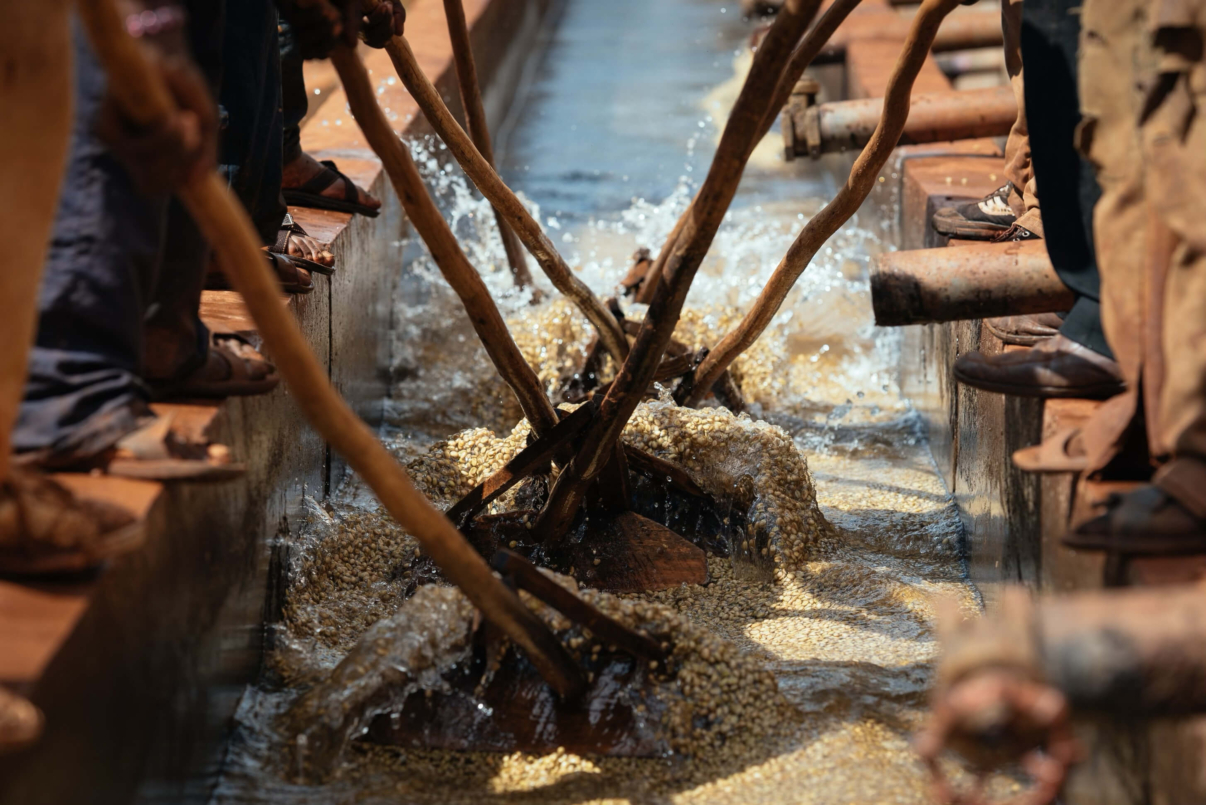This grade 1, fully washed, microlot is from the Uraga Solomo drying station in the Guji zone of Sidamo.
It has been sourced from smallholder farmers cultivating Welisho, a local variety of Ethiopian heirloom. This coffee utilises a traditional fully washed process, whereby ripe cherries are carefully selected via handpicking and floatation, de-pulped on the day of harvest, fermented for around 36 hours and then thoroughly washed to remove any remaining mucilage.
The coffee, still in its husk (parchment) is then dried in the sun, on raised African beds, for 12-15 days depending on the ambient conditions.
The coffee is also covered between 12pm and 3pm to protect it from the hot sun, and at night time to protect it from rainfall and moisture. Once the coffee has dried sufficiently it is transported to Addis Ababa for dry-milling, grading, intensive sorting and handpicking, before being bagged in GrainPro for export.
Uraga Solomo station processes cherries from local smallholder farmers cultivating between 1,945m and 1,970m. The infrastructure includes 10 standardised fermentation tanks and 215 drying beds. Coffee trees in the area are typically shaded by Cordia and Acacia and the predominant varietals are known locally as Kumie, Diga & Wilsho.
Over a number of years this region has developed a distinguished reputation for fine coffees, producing some of the most sought-after microlots in world. The combination of high altitude (up to 2,200m in some areas), fertile soil, consistent and plentiful rains, and an abundance of local knowledge are all contributing factors to the high status of these coffees. The indigenous ‘heirloom’ varietals – which grow wild in Ethiopia – are responsible for the unique flavour notes which make for an unusual but refined cup.
